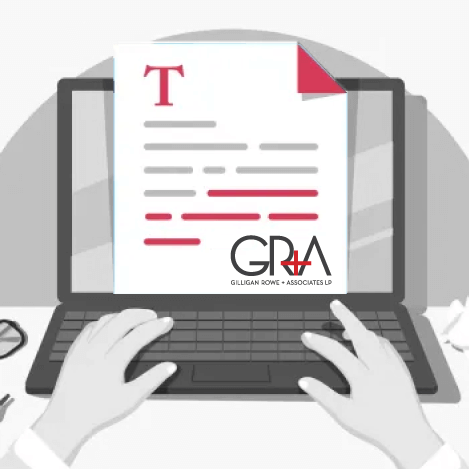
Many people who have bought an investment property over the past 12 months have been forced to buy a new build due to the government’s current rules:
• Healthy Home requirements
• Lower LVR for new builds (20% deposit rather than the 40% required for second-hand properties)
• The ability to claim interest for 20 years from issue of the code compliance certificate (you can no longer claim interest on most second-hand properties)
• New builds are subject to a 5-year bright-line period, rather than the 10-year period second-hand houses are now subject to

Buying off-the-plan
Most purchasers like to negotiate, and the main way you can buy at a discount with new builds is by purchasing off-the-plan, especially if you get in very early on in a development when the developer needs pre-sales.
I personally love this technique, and on each occasion that I’ve used it, it has provided me with some good equity before the dwelling has been completed. However, you need to be aware of the potential risks.
One of the main risks
One of the worst horror stories that can occur when buying off-the-plans is the developer activating the sunset clause (explained further below) when it is in the developer’s favour.
Right now, with escalating product prices and time delays getting supplies into New Zealand, the sunset clause is again raising its ugly head. Read on for a short but incredibly important explanation of this clause and how it can be in your, the buyer’s, favour – not the developer’s.
Resource consent clause
If you are signing a sale and purchase agreement before Resource Consent (RC) has been granted, there will be RC and finance clauses in the contract. Don’t confuse these with the sunset clause. They are different.
The developer obviously can’t carry out the project unless both RC and finance are approved; this would normally be less than six months from signing an agreement if you are right at the beginning of the project. A sunset clause, on the other hand, might be two years or so from signing.

Sunset clause
Sunset clauses are common in off-the plan property sale and purchase agreements and give a party (or both parties) the ability to cancel the agreement if title and code compliance certificate (CCC) have not been issued by a certain date (sunset date).
Sunset clauses provide more certainty as to when a party can rightfully cancel. Without a sunset clause, parties may find themselves locked into an agreement for an uncertain period of time with neither having the ability to cancel unless mutually agreed.
One-way sunset clause
A one-way sunset clause only allows one party to cancel the agreement if a specific event has not occurred by the sunset date, usually title. It gives that party the option to cancel the sales and purchase agreement if they wish to, or they can choose to carry on the contract. Either way, they must declare which option they have chosen.
One-way sunset clauses are ideal for off-the-plan property purchasers, but can become problematic for vendors if there are project delays. Costs can explode and put the vendor in an undesirable funding situation, so they may have additional clauses in the agreement that state they can ask the purchaser for extra funding. Purchasers need to watch out for these clauses!
For a purchaser, a sunset clause gives flexibility. If the project is extended beyond the sunset date, they can cancel the contract and get their deposit back. However, often the market price has gone up substantially and they have made capital gains, so they will sit it out and wait for the project to be completed.
Two-way sunset clauses
Two-way sunset clauses allow either party to cancel the agreement if a specified event has not occurred by the sunset date.
It is now commonplace for vendors to push for a two-way sunset clause, particularly in off-the-plan property agreements. The rationale behind this is because for various reasons (Covid-19 being a good example) there can be delays on completion. This in turn can lead to increased costs of materials and holding costs etc., leaving vendors in a position where they may not want to be locked into the original terms of the agreement.
Sunset clauses have been quite the topic in the media as of late, with some reports of property developers allegedly misusing two-way sunset clauses to cancel agreements, only to ultimately resell for higher prices.
This highlights the need to obtain legal advice before signing an agreement. Be sure obtain such advice from a legal representative who is experienced in this area and who understands off-the-plan sales agreements. Some don’t.
Real estate agents
Be wary, as some real estate agents just want a signed sale and purchase agreement and don’t even understand the further terms of sale with off-the-plan property. Ask them, and ascertain their understanding. At Property Ventures Real Estate we always want a purchaser to know the consequences of what they are signing.
If you can, go to an off-the-plan specialist that has a variety of off-the-plan property and understands the developer and what they are trying to achieve. They are better sometimes than going directly to the developer, as the agent has a duty of care to both parties, whereas the developer doesn’t.
For any additional queries on this topic, or if want a quick chat about what we have on our books (often not on our website), please contact me: Ph 021 402 990 or [email protected].

Guest Contributor
Invited guest writer
Did you like this article? Subscribe to our newsletter to receive tips, updates and useful information to help you protect your assets and grow your net worth. We're expert accountants providing expert advice to clients in NZ and around the world.
Disclaimer: This article is intended to provide only a summary of the issues associated with the topics covered. It does not purport to be comprehensive nor to provide specific advice. No person should act in reliance on any statement contained within this article without first obtaining specific professional advice. If you require any further information or advice on any matter covered within this article, please contact the author.
Comments
Testimonials
We can definitely say we are very happy we changed accountants to you guys. It's made a big difference. Cheers - Emma & Steve - February 2017
Property 101by Matthew Gilligan
Investing in residential property?
Put this at the top of your reading list.
If you're investing in residential property, seeking to maximise your ability to succeed and minimise risk, then this is a 'must read'.
Matthew Gilligan provides a fresh look at residential property investment from an experienced investor’s viewpoint. Written in easy to understand language and including many case studies, Matthew explains the ins and outs of successful property investment.
- How to find the right property
- How to negotiate successfully
- Renovation do's & don'ts
- Property management
- Case studies and examples
- and much, much more...


































